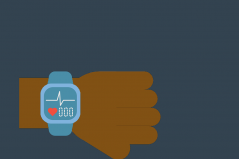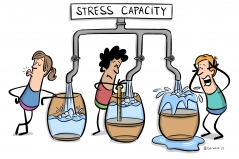Essential psychological aspects of the Olympic Mind

keywords:
Olympics / Olympic Games Paris / paris / european championship / football / uefa / em / Germany / perfection / focus / mastery / resilience / mental
Essential psychological aspects of the Olympic Mind
It is a common myth that perfection and ‘rising above yourself’ are required to clinch Olympic gold. Very rarely, however, do athletes realize a perfect race or match. If athletes nonetheless focus solely on this inspiring but virtually unattainable goal, they may underachieve in the big moments. From a psychological perspective, peak performance is also about controlling the controllables, acceptance, composure, focus on the task at hand, limiting performance losses, and being prepared for setbacks. / more
There is no place like home – How the French crowd may impact the athletes at the Paris 2024 Olympic Games

keywords:
Olympics / Olympic Games Paris / paris / european championship / football / uefa / em / Germany / Home advantage / fans / spectators / away game
There is no place like home – How the French crowd may impact the athletes at the Paris 2024 Olympic Games
Athletes and fans believe to be superior when competing at home. Will the French believe the same at this year’s Olympics in Paris? We review the psychological explanations for a home advantage and predict that French athletes will perform better at home, but, they are not unbeatable. / more
Heart rate variability (HRV): How Olympic athletes can use the heart-mind connection to boost their performance

keywords:
Olympics / Olympic Games Paris / paris / european championship / football / uefa / em / Germany / Heart rate variability / vagus nerve / slow-paced breathing / cardiac coherence
Heart rate variability (HRV): How Olympic athletes can use the heart-mind connection to boost their performance
In Olympic athletes, the heart and the mind team up to achieve success. This synergy can be tracked using heart rate variability (HRV). In this article, you will learn how changes in heart rhythm can boost Olympic athletes' training, help them recover from setbacks, and enhance their mental strength. Learn easy and effective techniques that tap into this heart-mind connection to help athletes perform their best at the Olympics. / more
“Keeping the Olympic flame burning”: Protecting athletes from vurnout in sport

keywords:
Olympics / Olympic Games Paris / paris / european championship / football / uefa / em / Germany / Athlete burnout / health / depression / Prevention strategies
“Keeping the Olympic flame burning”: Protecting athletes from vurnout in sport
Athlete burnout is a growing concern in sport, particularly among elite athletes who compete at the highest level, such as the Olympic Games. It is characterized by the symptoms of physical and emotional exhaustion, a reduced sense of athletic accomplishment, and sport devaluation. The present article will explore its causes and consequences. It also aims to guide the creation of effective strategies for preventing and mitigating burnout in elite athletes who will compete during the Olympic Games. / more
Never fear, a moral expert is here
Never fear, a moral expert is here
Editorial Assitant: Stella Wernicke Note: This article was already reviewed and is published in the German version of In-Mind. Can I read the diaries of my deceased daughter? Can I tell a friend's family that they have a drug problem, even if they have asked me to keep it quiet? Many people are confronted with tricky moral decision-making situations in the course of their lives and seek the advice of friends, family members, or even experts. But is... / more
Climate stress in everyday life: How can we support children?

keywords:
climate change / climate crisis / mental health / children and adolescents / coping with emotions
Climate stress in everyday life: How can we support children?
The climate crisis leads to significant changes in nature and ultimately in our society challenging all of us. Children and adolescents are particularly vulnerable in their mental processing, as well as physically, due to their socially dependent position. How can we support them in dealing with this major challenge in their lives? We present current scientific findings related to the lives of young people. How can we support children in coping with climate stress? A team of psychologists explains. / more
Tilting at windmills: How conspiracy theories hinder climate action and what to do about it

keywords:
Conspiracy belief / conspiracy theories / conspiracy mentality / climate change / climate protection
Tilting at windmills: How conspiracy theories hinder climate action and what to do about it
Conspiracy theories about climate change are common. People who believe in them show less climate-friendly attitudes and behaviors. But there are ways to reduce the impact of conspiracy theories in the context of climate action. / more
It’s just a joke, right? Empirical findings on the serious effects of sexist humor
It’s just a joke, right? Empirical findings on the serious effects of sexist humor
You can still make a joke, right? Yes, but... misogynistic jokes about women can have negative consequences. What can such humor do to women and men? / more
Horoscopes – why we believe in them

keywords:
horoscope / Barnum effect / Forer effect / marketing / cognitive bias / The Greatest Showman
Horoscopes – why we believe in them
When reading horoscopes, we often find sentences like: "Sometimes you are extroverted, sociable, and open-minded, sometimes rather introverted, skeptical, and reserved." If you feel that this statement applies to you, you're not alone. Horoscopes often seem to be very accurate; an observation that might be attributed to the Barnum effect. / more



